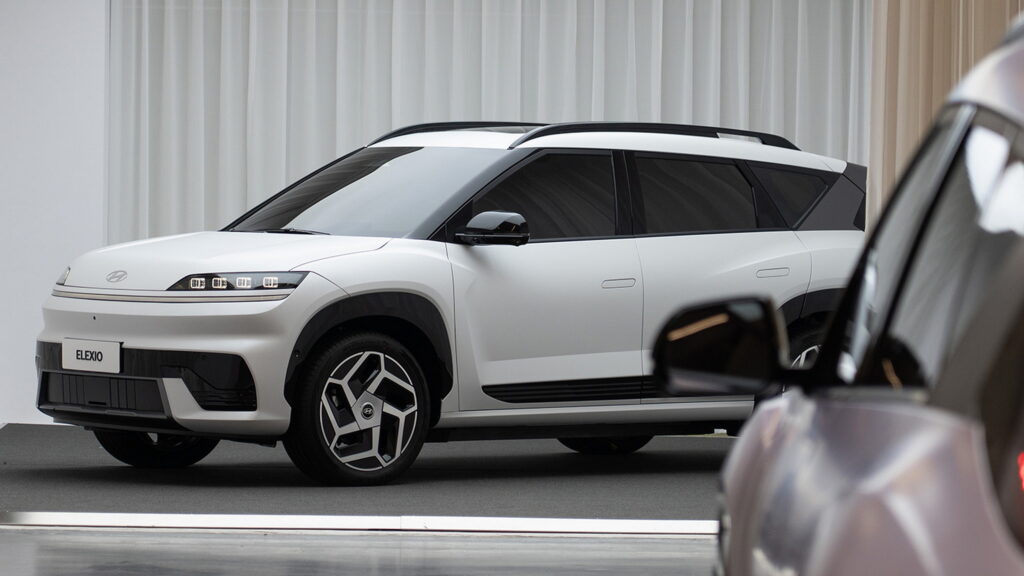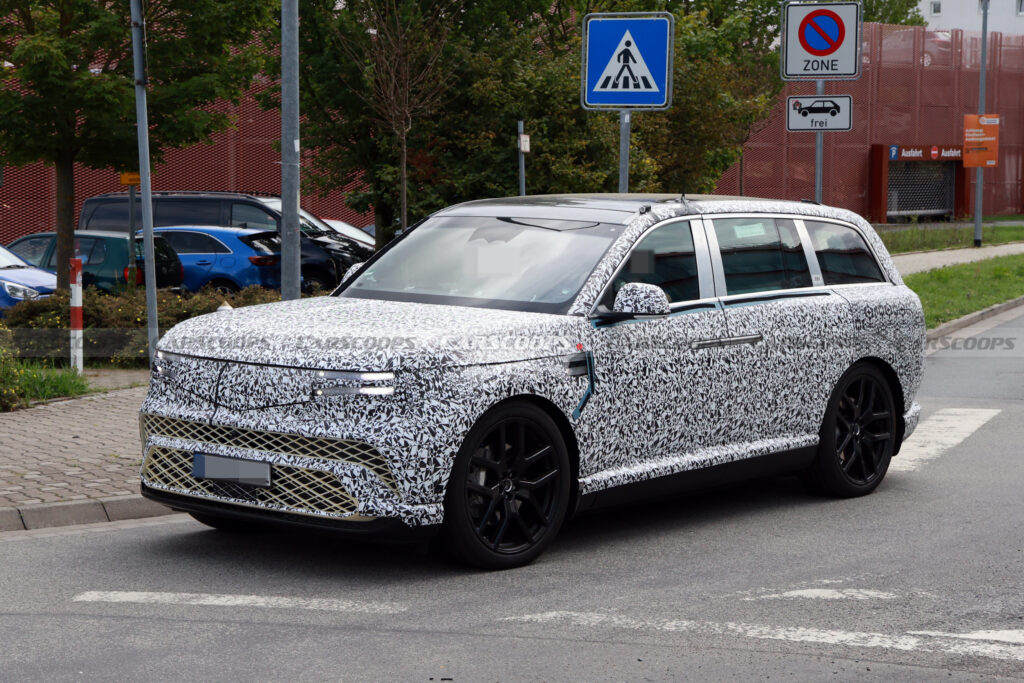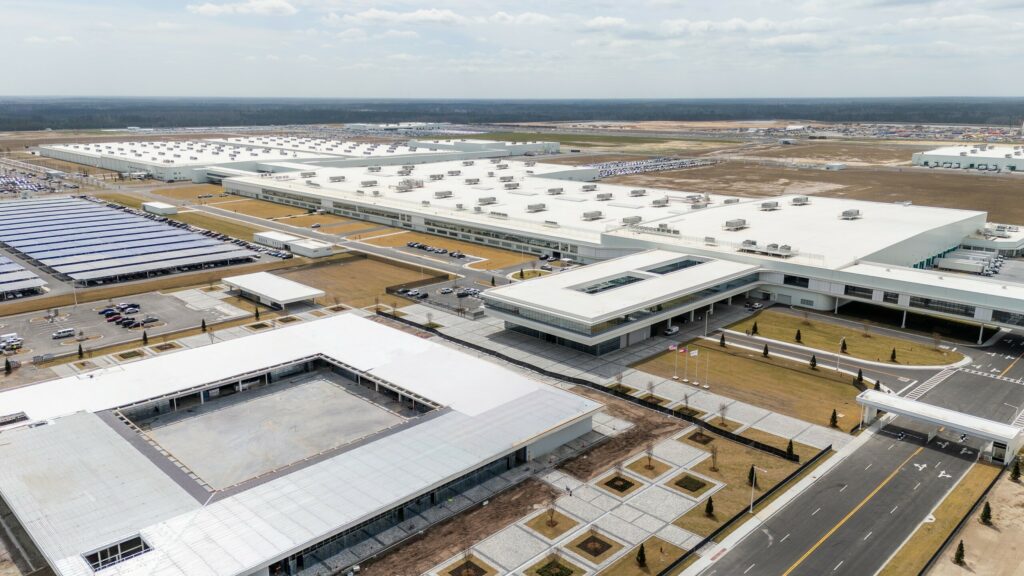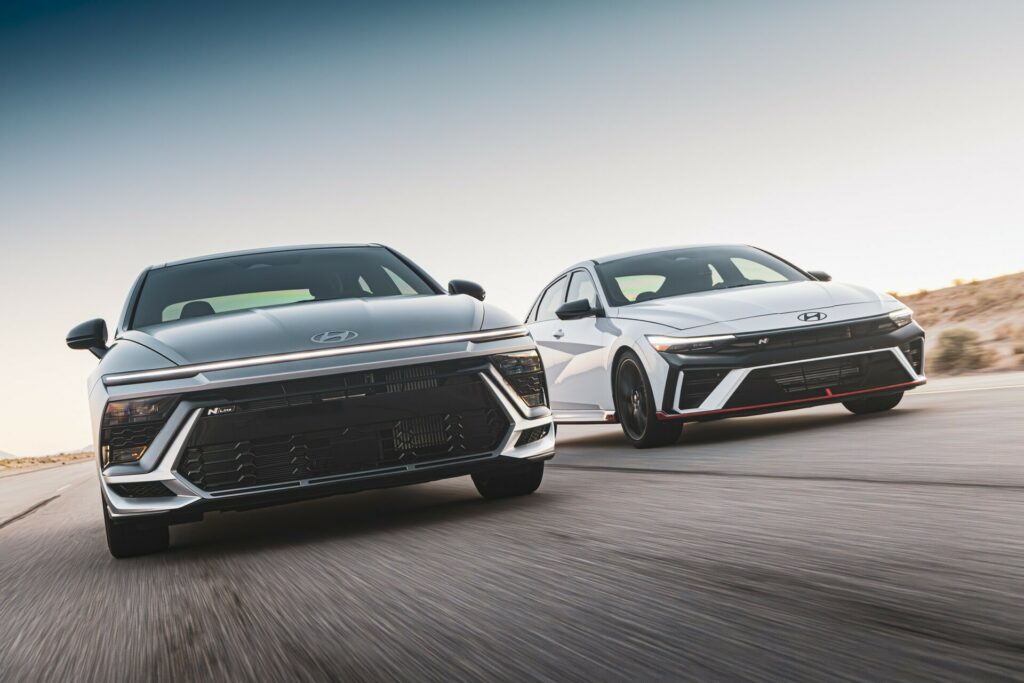Hyundai’s Pickup Plan Could Also Unleash A Rugged Off-Road SUV
- Hyundai reveals new growth strategy with multiple models planned..
- A mid-size pickup will launch in North America to rival established trucks.
- High-performance N lineup to grow past seven models by end of decade.
Hyundai has used their investor event to unveil a future product roadmap and a “2030 Vision.” It calls for an assortment of new models including range-extended electric vehicles.
Starting stateside, Hyundai announced plans to launch its first body-on-frame mid-size truck in North America by 2030. It will challenge the Chevrolet Colorado, GMC Canyon, Ford Ranger, Nissan Frontier, Toyota Tacoma, and the reborn Ram Dakota.
More: Americans Love Trucks, Except Ones From Hyundai
The company has high hopes for the pickup asppp they noted it targets “one of the largest segments in the industry.” Hyundai added they have “gained valuable experience and brand presence” since launching the compact unibody Santa Cruz in 2021. CEO Jose Munoz even hinted that a rugged, off-road SUV could join the lineup built on the same platform.
More N Models And Hybrids
Hyundai’s N lineup will expand to more than seven models by 2030, including the all-new Ioniq 6 N. The company believes the move will increase global N sales to over 100,000 units annually.
Hyundai will also expand its hybrid lineup to include more than 18 models by 2030. They’ll also embrace commercial vehicles in North America by offering a large electrified van as well as the XCIENT fuel cell truck and Translead trailers.
Lots Of New EVs
Baldauf / Carscoops
Hyundai bet big on EVs and even more are on the horizon, including an entry-level Ioniq 3 for Europe. The model was recently previewed by a concept and will be a mass-market vehicle with a next-generation infotainment system.
Sticking with international markets, India will get its first locally designed EV, while China gets a new C-segment electric sedan. The latter will be joined by the recently unveiled Elexio SUV.
The automaker is also gearing up to launch its first range-extended electric vehicles in 2027. They’ll offer more than 600 miles (966 km) of combined range as well as high-performance batteries that were developed in-house. Hyundai said they’ll have “full EV power performance with less than half the battery capacity, improving accessibility while maintaining exceptional range and performance, and eliminating range anxiety.”

Speaking of EVs, Hyundai noted a cloud-based battery management system is coming in 2026. It promises to “collect data from diverse vehicle environments, applying proprietary advanced modeling for faster, more precise diagnostics.”
We can also expect next-generation batteries that will arrive by 2027. These are said to be 30% cheaper despite having a 15% higher energy density. Charging times will also drop by 15%, making ownership more convenient.
Hyundai is also developing next-generation fuel cell systems for commercial vehicles. These promise to have “high efficiency, durability and power output to meet the demands of future mobility.”
Genesis Gets Some Love

On the luxury side of the equation, the Genesis lineup will expand to include hybrid, electric, and range-extended vehicles. The first hybrid will arrive next year and the company said their next-generation platform will support multi-energy configurations.
Genesis is aiming to increase annual sales to 350,000 units by 2030, and they’ll achieve this by expanding their presence in the United States, Europe, Korea, China, the Middle East, and emerging markets. Speaking of Europe, the brand is planning to be in up to 20 European markets in the coming years.
In the United States, Genesis is planning to strengthen its market presence through local production and the introduction of range-extended EVs. The company also mentioned “ultra-bespoke vehicles,” hinting at possible ultra-luxury ambitions.
Company Eyes Increased Sales And More US Production

Overall, Hyundai is targeting global sales of 5.55 million vehicles by 2030. They’re banking on “significant growth” in North America, Europe, and Korea to achieve this.
Getting back to the United States, the Hyundai Metaplant in Georgia is set to increase its annual production capacity to 500,000 vehicles by 2028. The plant currently builds the Ioniq 5 and Ioniq 9, but it will eventually make hybrids as well.
Hyundai said the expansion will create 3,000 direct and indirect jobs, and involve a $2.7 billion investment over three years. The company also aims to produce more than 80% of vehicles sold in the United States domestically by 2030, with supply chain content increasing from 60% to 80%.
